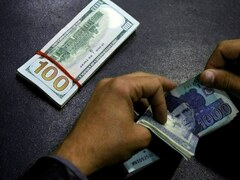ISLAMABAD: International Monetary Fund (IMF) has asked government to progressively raise excises on luxury goods including cigarettes.
The IMF's advice is based on its report titled “Tax Policy Diagnostic and Reform Options,” which highlights Pakistan’s tax system's underperformance in revenue generation, efficiency, equity, fairness, and sustainability. The report underscores the need for structural reforms to tackle deep-seated issues in the tax regime.
The report said that the reform could focus on harmonising rates across items (such as locally and foreign manufactured cigarettes) and broaden the base (for example, to include e-cigarettes).
The government should apply the same rate of excise on all locally manufactured cigarettes, regardless of whether the manufacturer is local or foreign. The FED rates on tobacco products were gradually increased between 2019 and 2022, and then saw a big increase by on average 146 percent in February 2023. Survey findings suggest that as a result of this increase, the consumption of cigarettes has declined by 20-25 percent, it added.
“Taxing tobacco is the way forward. It is win-win for public health and for generation of revenue for the government,” said Malik Imran Ahmed, Country Head of Campaign for Tobacco Free Kids (CTFK).
Ahmed said that implementation of the IMF recommendations and jacking up the prices of cigarettes in Pakistan would push people to quit smoking and save hundreds of lives every year.
He said that despite the substantial taxes imposed on cigarettes, the revenue generated falls short of covering the healthcare costs incurred due to smoking-related illnesses.
Tobacco taxation in Pakistan has always been under the influence of major industry players particularly the multinationals who would convince the government against raising taxes until recently.
However, a change has been witnessed in past few years and the taxes on cigarettes have been increased substantially. Pakistan still is a place where cigarettes are cheaper from the region, he added.
Copyright Business Recorder, 2024
























Comments
Comments are closed.